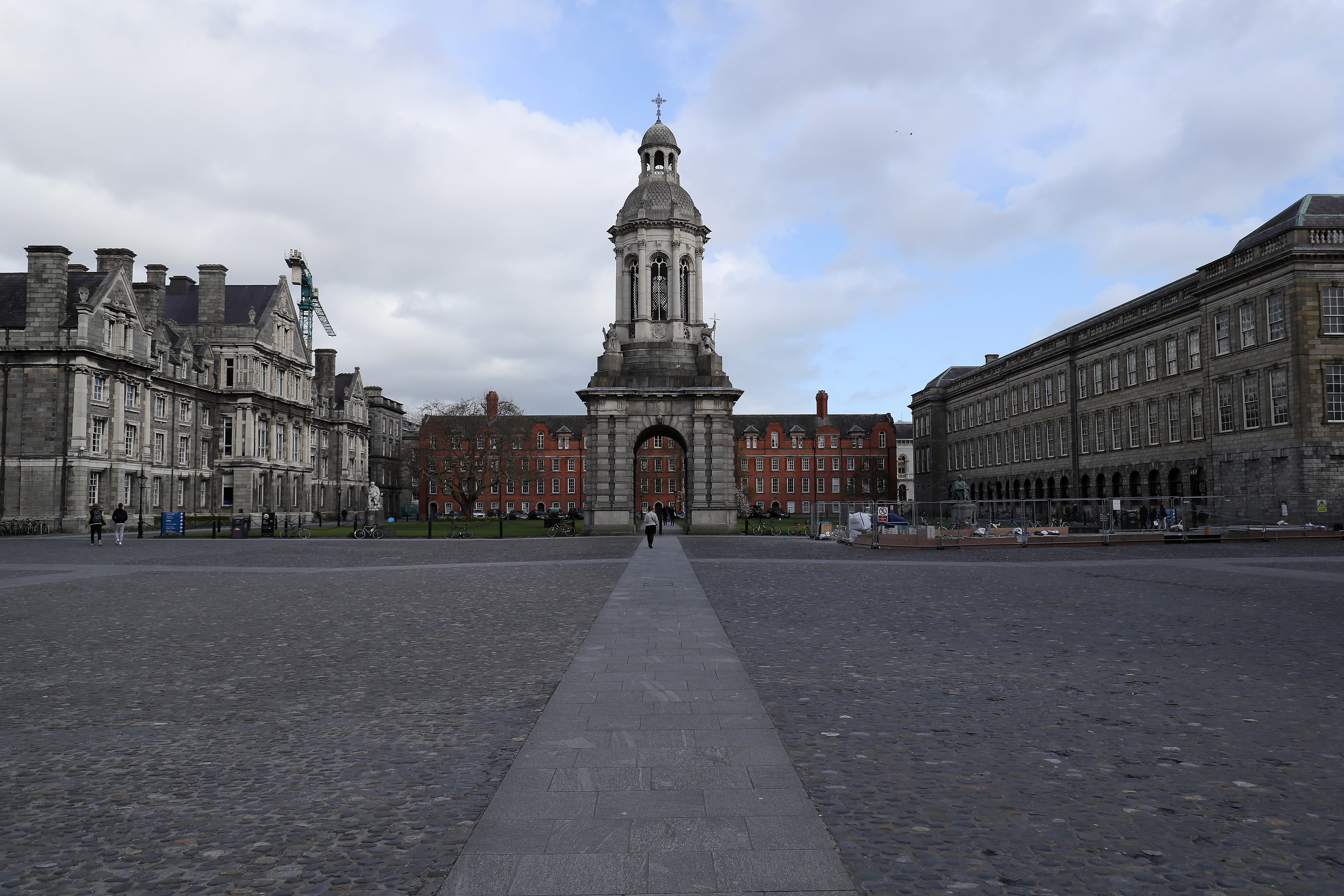Trinity, UCC, UCD and DCU to introduce paid domestic violence leave in 2022
It follows a move by NUI Galway last year to offer 10 working days of paid leave to all staff members experiencing domestic violence or abuse.

Your support helps us to tell the story
From reproductive rights to climate change to Big Tech, The Independent is on the ground when the story is developing. Whether it's investigating the financials of Elon Musk's pro-Trump PAC or producing our latest documentary, 'The A Word', which shines a light on the American women fighting for reproductive rights, we know how important it is to parse out the facts from the messaging.
At such a critical moment in US history, we need reporters on the ground. Your donation allows us to keep sending journalists to speak to both sides of the story.
The Independent is trusted by Americans across the entire political spectrum. And unlike many other quality news outlets, we choose not to lock Americans out of our reporting and analysis with paywalls. We believe quality journalism should be available to everyone, paid for by those who can afford it.
Your support makes all the difference.A number of third-level institutions have committed to introducing a domestic violence leave policy for staff in 2022.
NUI Galway announced in May last year that all staff members experiencing domestic violence or abuse would be granted 10 working days of paid leave.
Trinity College University College Cork (UCC), University College Dublin (UCD) and Dublin City University (DCU) have all committed to introducing similar policies in 2022, following a request by Further Education Minister Simon Harris.
There has not been universal acceptance across the sector, which is disappointing but we will continue to work on this and build on the progress
Minister Harris said: “Support for victims who are working, in the form of paid leave, could be crucial in ensuring that they retain their employment and have the economic capacity to escape an abusive relationship.
“The introduction of the domestic violence leave policy marks a critical step forward in ensuring that higher education institutions are safe and supportive workplaces.
“I really want to commend NUI Galway for starting this important conversation across third level and I am pleased to see others following.
“There has not been universal acceptance across the sector, which is disappointing but we will continue to work on this and build on the progress.”
At NUI Galway, staff can avail of up to 10 working days of paid domestic violence leave which will be granted on a “rolling basis”, and can be taken as a block or on separate days.
Minister Harris wrote to every college in the country in June, urging them to follow suit.
In the letter, seen by the PA news agency, he wrote: “The purpose of the policy is to provide for a period of paid time away from work for staff members who have suffered or are suffering from domestic violence or abuse.
“This leave will enable the staff member to take the time they need to seek assistance in a structured and supported environment.
“Our institutions have a duty of care to their staff and this policy builds on, and complements, the work that is ongoing across our higher education system to tackle sexual violence and harassment, and to foster institutional campus cultures that are safe, respectful and supportive.”
He added: “Domestic violence does not just have a major impact on the person and their family.
“It can also have a significant impact on the person’s working life, and their wellbeing.
“I would like to encourage other higher education institutions to consider implementing such a policy to cover all staff, and I know I can count on your support in this regard.”
Mr Harris warned that domestic violence remains “a pervasive problem in our society”, noting that cases had increased significantly during the pandemic.
“Figures for 2020, show that the Gardaí received some 43,000 calls to respond to domestic abuse incidents, a 16% increase on 2019,” he wrote.
“Nearly 15% of women between the ages of 18-74 have experienced physical and sexual violence in their lifetime, and nearly 31% have experienced psychological violence,” he added.
“While the risk to women is higher, domestic abuse also affects a significant number of men.”